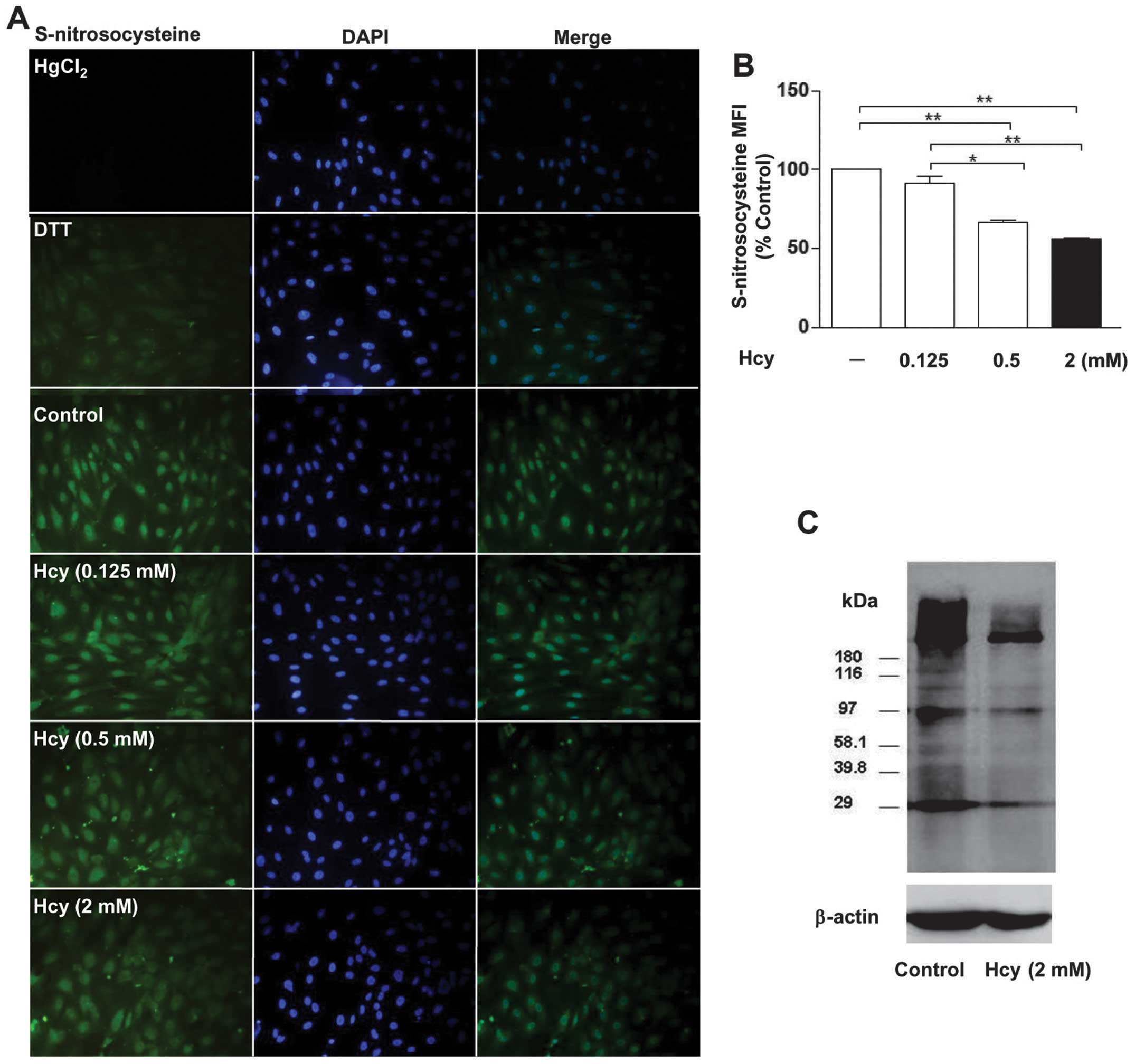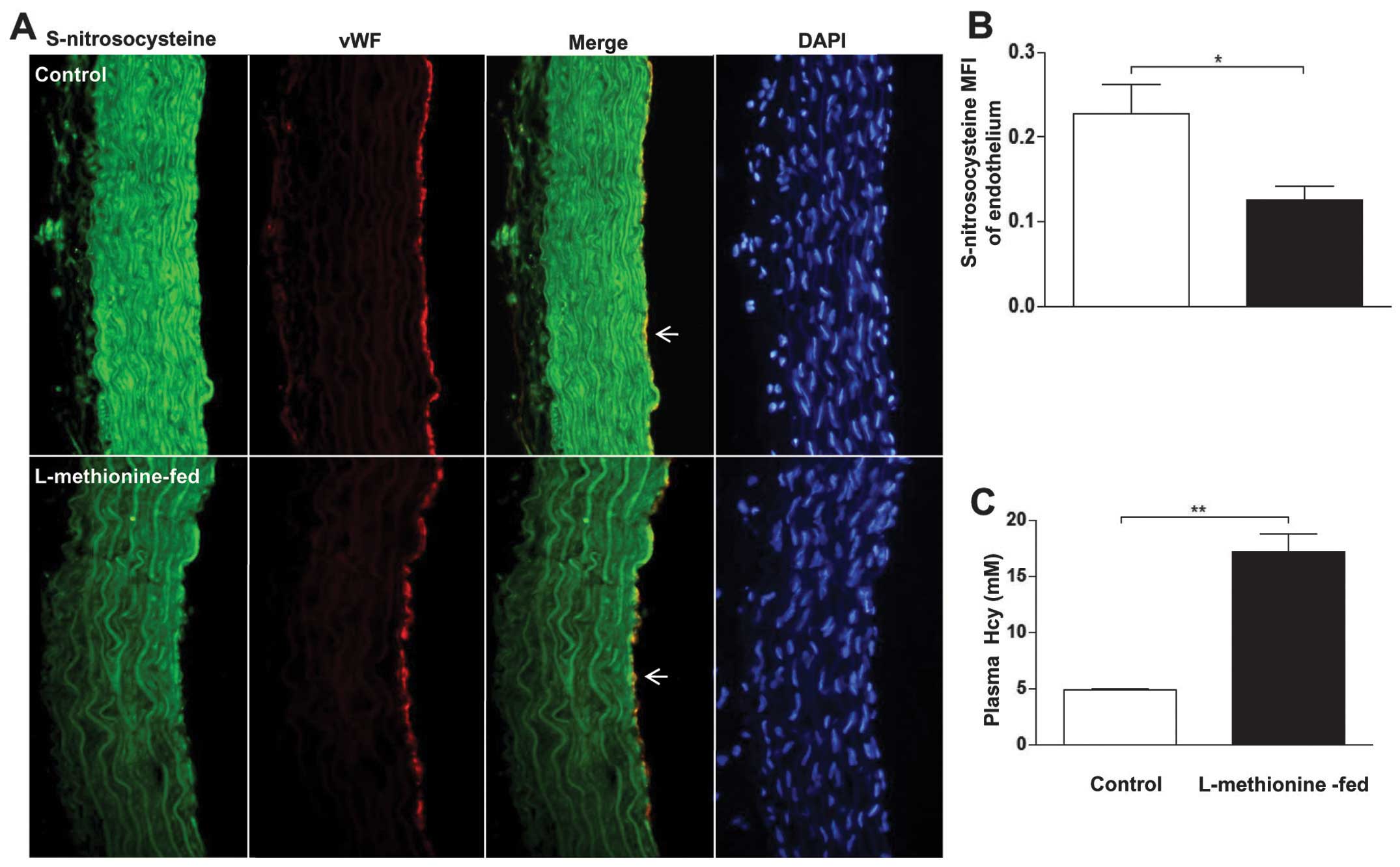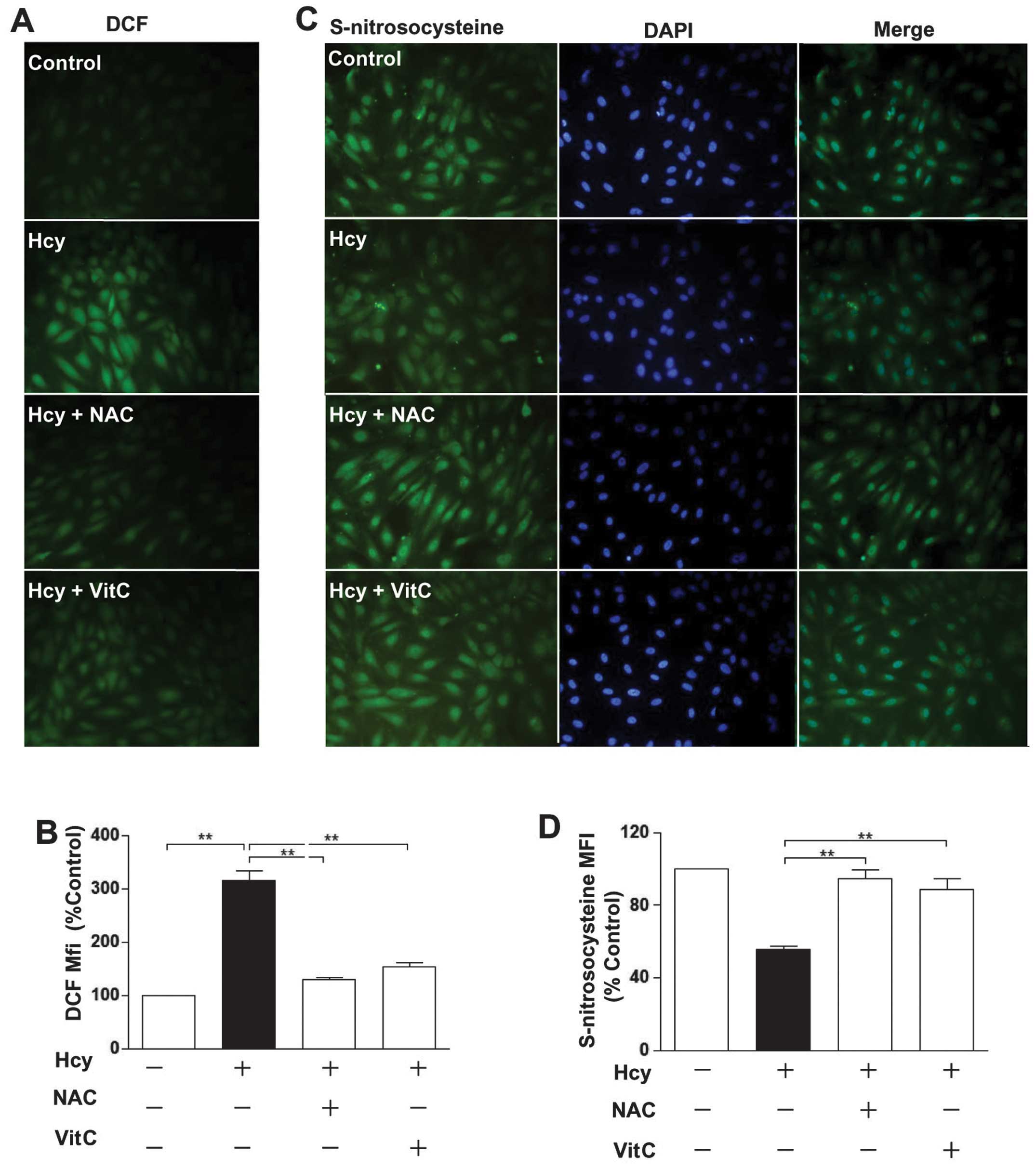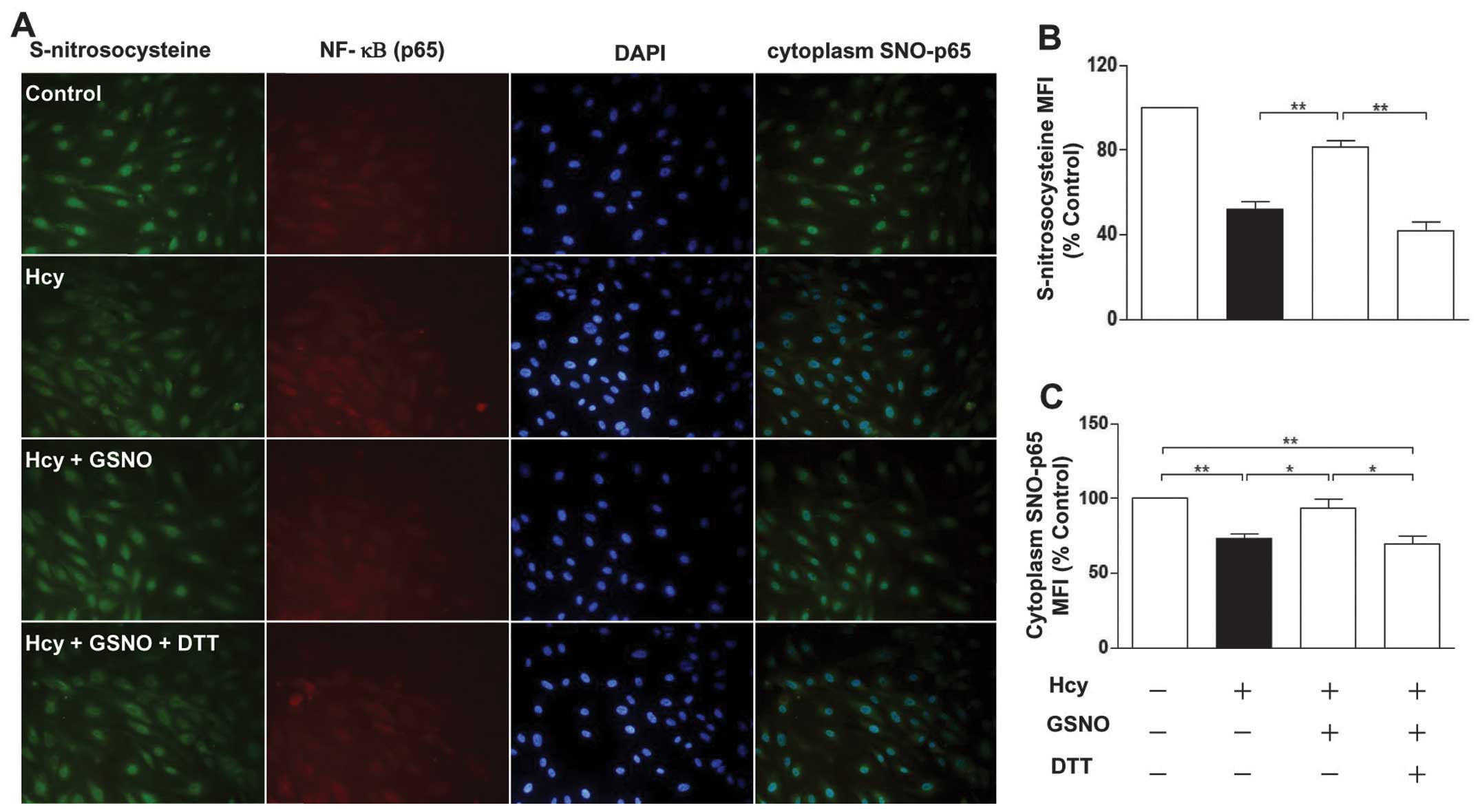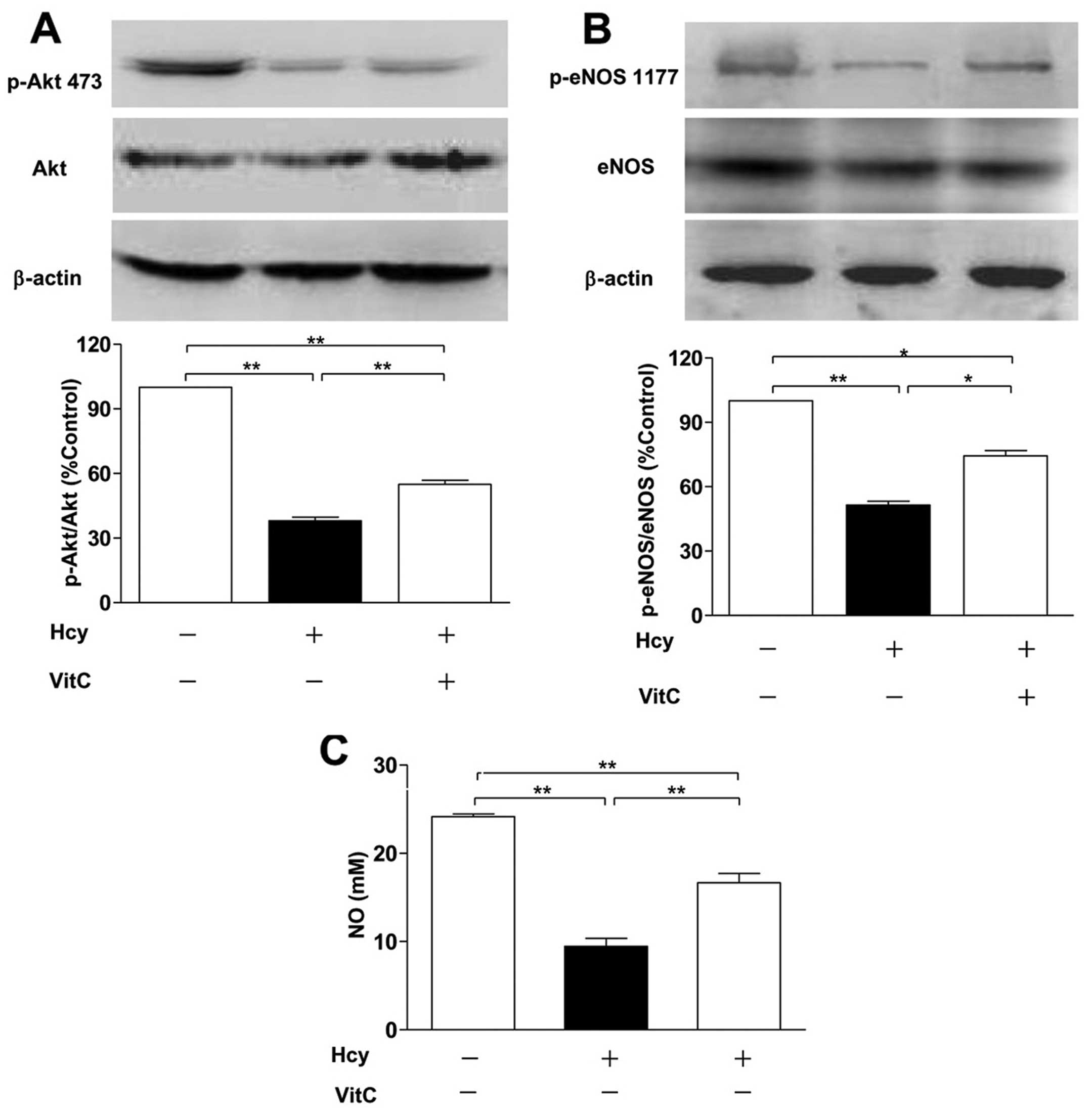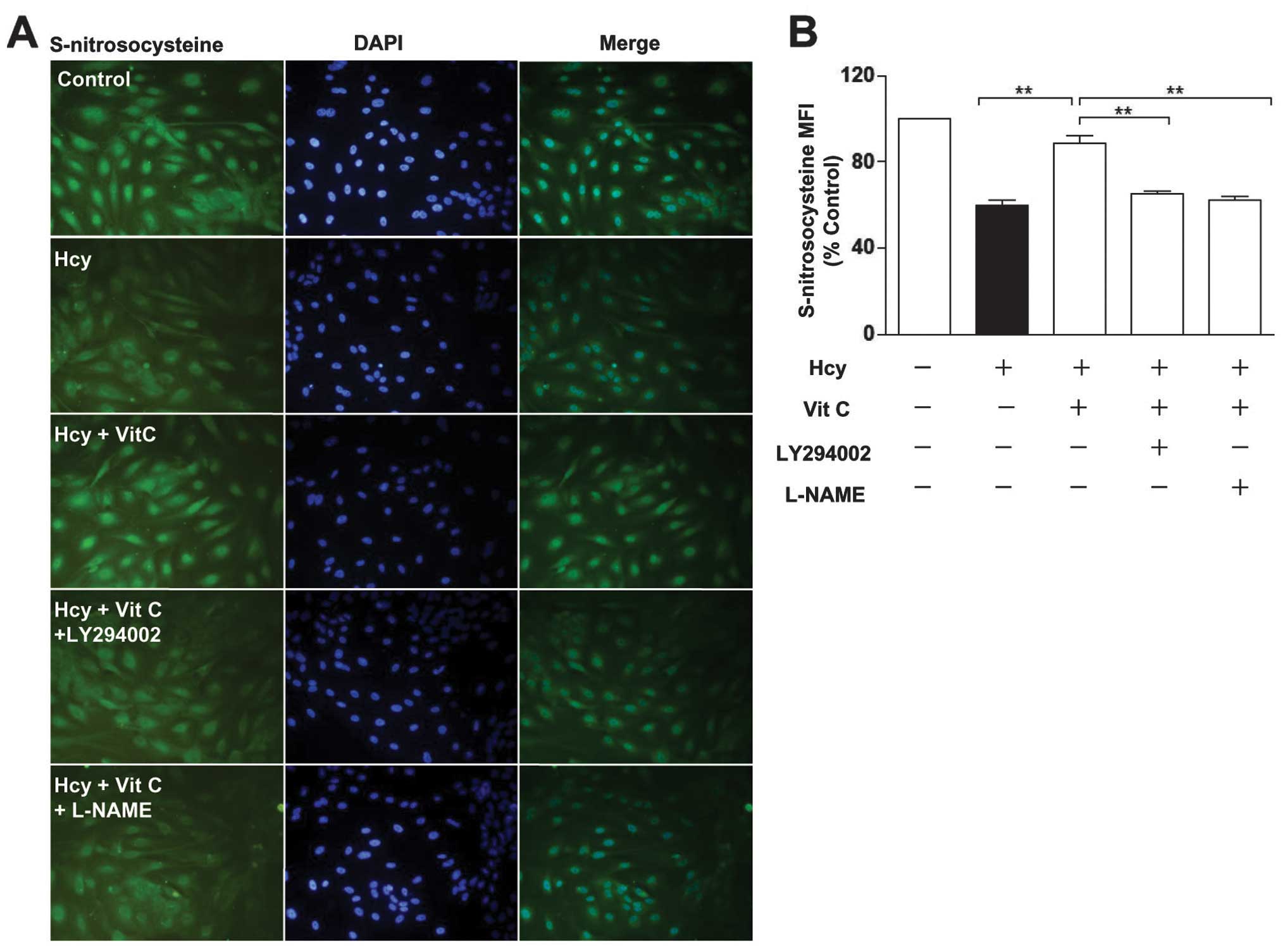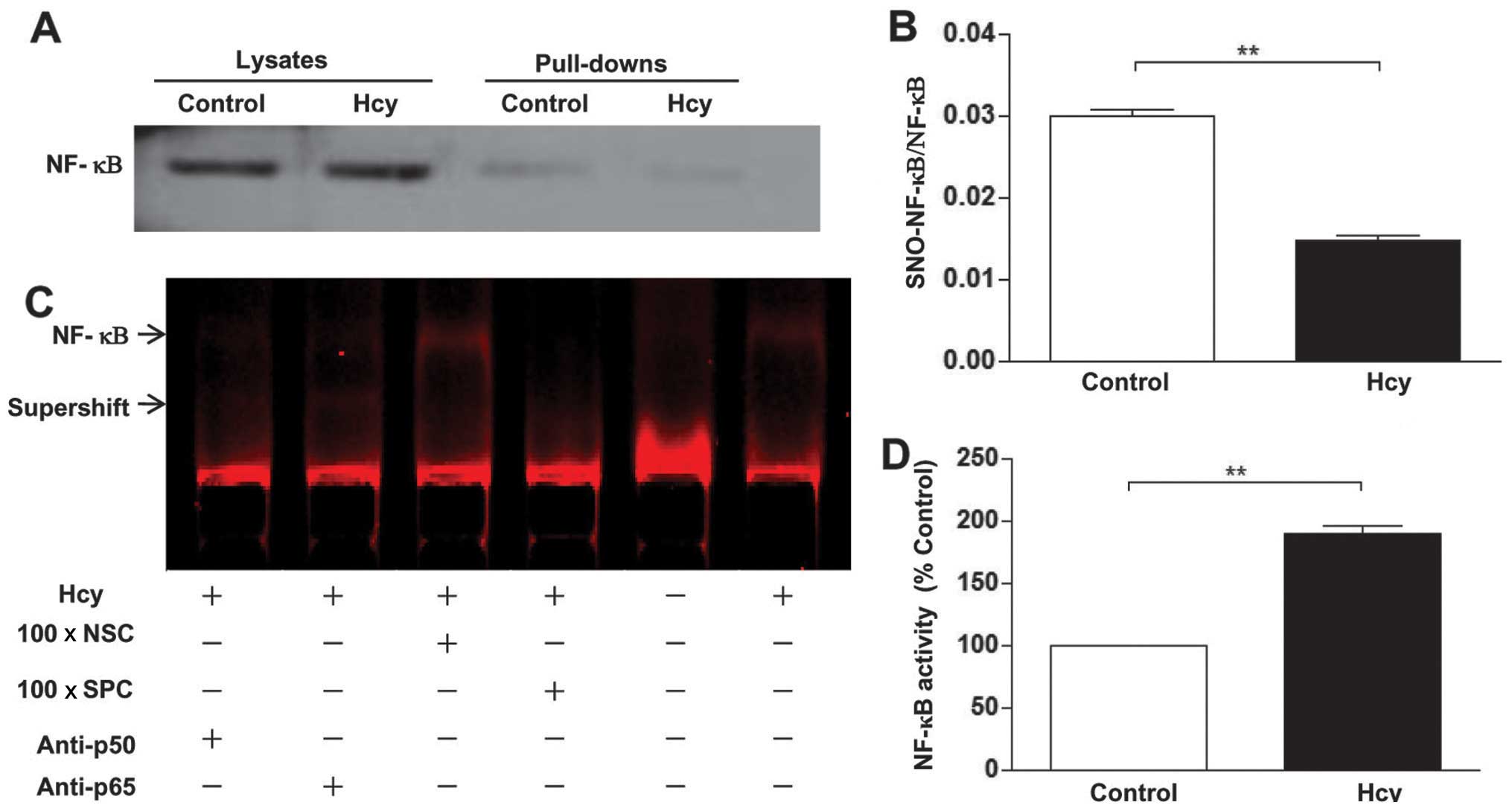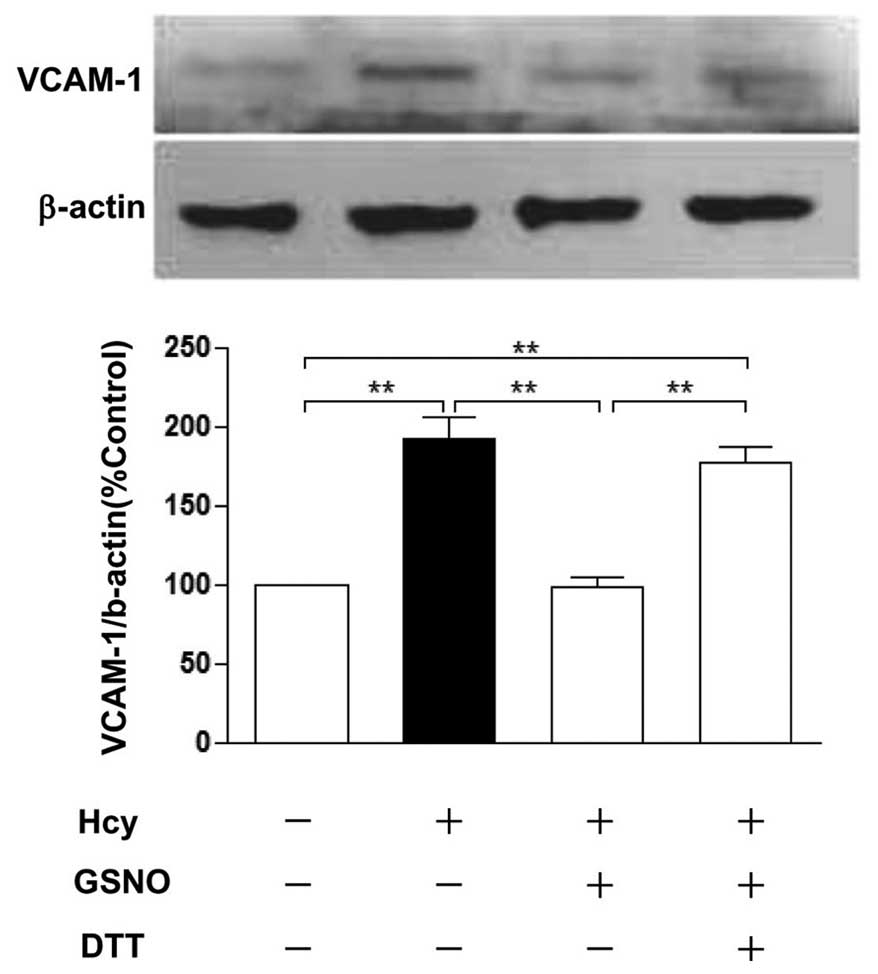|
1
|
Martínez-Ruiz A and Lamas S: Signalling by
NO-induced protein S-nitrosylation and S-glutathionylation:
convergences and divergences. Cardiovasc Res. 75:220–228.
2007.PubMed/NCBI
|
|
2
|
Lima B, Forrester MT, Hess DT and Stamler
JS: S-nitrosylation in cardiovascular signaling. Circ Res.
106:633–646. 2010. View Article : Google Scholar : PubMed/NCBI
|
|
3
|
Chakrabarti S, Lekontseva O, Peters A and
Davidge ST: 17beta-Estradiol induces protein S-nitrosylation in the
endothelium. Cardiovasc Res. 85:796–805. 2010. View Article : Google Scholar : PubMed/NCBI
|
|
4
|
Sun J, Picht E, Ginsburg KS, Bers DM,
Steenbergen C and Murphy E: Hypercontractile female hearts exhibit
increased S-nitrosylation of the L-type Ca2t channel alpha1 subunit
and reduced ischemia/reperfusion injury. Circ Res. 98:403–411.
2006. View Article : Google Scholar : PubMed/NCBI
|
|
5
|
Selemidis S, Dusting GJ, Peshavariya H,
Kemp-Harper BK and Drummond GR: Nitric oxide suppresses NADPH
oxidase-dependent superoxide production by S-nitrosylation in human
endothelial cells. Cardiovasc Res. 75:349–358. 2007. View Article : Google Scholar
|
|
6
|
Kang-Decker N, Cao S, Chatterjee S, Yao J,
Egan LJ, Semela D, Mukhopadhyay D and Shah V: Nitric oxide promotes
endothelial cell survival signaling through S-nitrosylation and
activation of dynamin-2. J Cell Sci. 120:492–501. 2007. View Article : Google Scholar : PubMed/NCBI
|
|
7
|
Marshall HE and Stamler JS: Inhibition of
NF-kappa B by S-nitrosylation. Biochemistry. 40:1688–1693. 2001.
View Article : Google Scholar : PubMed/NCBI
|
|
8
|
Hoffmann J, Haendeler J, Zeiher AM and
Dimmeler S: TNFalpha and oxLDL reduce protein S-nitrosylation in
endothelial cells. J Biol Chem. 276:41383–41387. 2001. View Article : Google Scholar : PubMed/NCBI
|
|
9
|
Wadham C, Parker A, Wang L and Xia P: High
glucose attenuates protein S-nitrosylation in endothelial cells:
role of oxidative stress. Diabetes. 58:2715–2721. 2007. View Article : Google Scholar : PubMed/NCBI
|
|
10
|
Hoffmann J, Dimmeler S and Haendeler J:
Shear stress increases the amount of S-nitrosylated molecules in
endothelial cells: important role for signal transduction. FEBS
Lett. 551:153–158. 2003. View Article : Google Scholar : PubMed/NCBI
|
|
11
|
Chen SC, Huang B, Liu YC, Shyu KG, Lin PY
and Wang DL: Acute hypoxia enhances proteins’ S-nitrosylation in
endothelial cells. Biochem Biophys Res Commun. 377:1274–1278.
2008.
|
|
12
|
Hankey GJ and Eikelboom JW: Homocysteine
and vascular disease. Lancet. 354:407–413. 1999. View Article : Google Scholar
|
|
13
|
Suematsu N, Ojaimi C, Kinugawa S, et al:
Hyperhomocysteinemia alters cardiac substrate metabolism by
impairing nitric oxide bioavailability through oxidative stress.
Circulation. 115:255–262. 2007. View Article : Google Scholar
|
|
14
|
Ungvari Z, Sarkadi-Nagy E, Bagi Z, Szollár
L and Koller A: Simultaneously increased TxA(2) activity in
isolated arterioles and platelets of rats with
hyperhomocysteinemia. Arterioscler Thromb Vasc Biol. 20:1203–1208.
2000. View Article : Google Scholar : PubMed/NCBI
|
|
15
|
Forrester MT, Foster MW, Benhar M and
Stamler JS: Detection of protein S-nitrosylation with the
biotin-switch technique. Free Radic Biol Med. 46:119–126.
2009.PubMed/NCBI
|
|
16
|
Ota H, Eto M, Kano MR, Ogawa S, Iijima K,
Akishita M and Ouchi Y: Cilostazol inhibits oxidative
stress-induced premature senescence via upregulation of Sirt1 in
human endothelial cells. Arterioscler Thromb Vasc Biol.
28:1634–1639. 2008. View Article : Google Scholar : PubMed/NCBI
|
|
17
|
Wu Y, Zhang W, Liu W, Zhuo X, Zhao Z and
Yuan Z: The double-faced metabolic and inflammatory effects of
standard drug therapy in patients after percutaneous treatment with
drug-eluting stent. Atherosclerosis. 215:170–175. 2011. View Article : Google Scholar : PubMed/NCBI
|
|
18
|
Michaud SE, Dussault S, Groleau J, Haddad
P and Rivard A: Cigarette smoke exposure impairs VEGF-induced
endothelial cell migration: role of NO and reactive oxygen species.
J Mol Cell Cardiol. 41:275–284. 2006. View Article : Google Scholar : PubMed/NCBI
|
|
19
|
Lan TH, Xu ZW, Wang Z, Wu YL, Wu WK and
Tan HM: Ginsenoside Rb1 prevents homocysteine-induced endothelial
dysfunction via PI3K/Akt activation and PKC inhibition. Biochem
Pharmacol. 82:148–155. 2011. View Article : Google Scholar : PubMed/NCBI
|
|
20
|
Thibeault S, Rautureau Y, Oubaha M,
Faubert D, Wilkes BC, Delisle C and Gratton JP: S-nitrosylation of
beta-catenin by eNOS-derived NO promotes VEGF-induced endothelial
cell permeability. Mol Cell. 39:468–476. 2010. View Article : Google Scholar : PubMed/NCBI
|
|
21
|
Pi X, Wu Y, Ferguson JE III, Portbury AL
and Patterson C: SDF-1alpha stimulates JNK3 activity via
eNOS-dependent nitrosylation of MKP7 to enhance endothelial
migration. Proc Natl Acad Sci USA. 106:5675–5680. 2009. View Article : Google Scholar : PubMed/NCBI
|
|
22
|
Oliveira CJ, Curcio MF, Moraes MS, Tsujita
M, Travassos LR, Stern A and Monteiro HP: The low molecular weight
S-nitrosothiol, S-nitroso-N-acetylpenicillamine, promotes cell
cycle progression in rabbit aortic endothelial cells. Nitric Oxide.
18:241–255. 2008. View Article : Google Scholar : PubMed/NCBI
|
|
23
|
Santhanam L, Tuday EC, Webb AK, et al:
Decreased S-nitrosylation of tissue transglutaminase contributes to
age-related increases invascular stiffness. Circ Res. 107:117–125.
2010. View Article : Google Scholar : PubMed/NCBI
|
|
24
|
Martínez-Ruiz A and Lamas S: Detection and
proteomic identification of S-nitrosylated proteins in endothelial
cells. Arch Biochem Biophys. 423:192–199. 2004.
|
|
25
|
McCully KS: Chemical pathology of
homocysteine. IV Excitotoxicity, oxidative stress, endothelial
dysfunction, and inflammation. Ann Clin Lab Sci. 39:219–232.
2009.PubMed/NCBI
|
|
26
|
Chavakis E, Dernbach E, Hermann C, Mondorf
UF, Zeiher AM and Dimmeler S: Oxidized LDL inhibits vascular
endothelial growth factor-induced endothelial cell migration by an
inhibitory effect on the Akt/endothelial nitric oxide synthase
pathway. Circulation. 103:2102–2107. 2001. View Article : Google Scholar
|
|
27
|
Dimmeler S, Fleming I, Fisslthaler B,
Hermann C, Busse R and Zeiher AM: Activation of nitric oxide
synthase in endothelial cells by Akt-dependent phosphorylation.
Nature. 399:601–605. 1999. View
Article : Google Scholar : PubMed/NCBI
|
|
28
|
Carluccio MA, Ancora MA, Massaro M, et al:
Homocysteine induces VCAM-1 gene expression through NF-kappaB and
NAD(P)H oxidase activation: protective role of Mediterranean diet
polyphenolic antioxidants. Am J Physiol Heart Circ Physiol.
293:H2344–H2354. 2007. View Article : Google Scholar
|
|
29
|
Au-Yeung KK, Woo CW, Sung FL, Yip JC, Siow
YL and OK: Hyperhomocysteinemia activates nuclear factor-kappaB in
endothelial cells via oxidative stress. Circ Res. 94:28–36. 2004.
View Article : Google Scholar : PubMed/NCBI
|
|
30
|
Kelleher ZT, Matsumoto A, Stamler JS and
Marshall HE: NOS2 regulation of NF-kappaB by S-nitrosylation of
p65. J Biol Chem. 282:30667–30672. 2007. View Article : Google Scholar : PubMed/NCBI
|
|
31
|
Marshall HE, Hess DT and Stamler JS:
S-nitrosylation: physiological regulation of NF-kappaB. Proc Natl
Acad Sci USA. 101:8841–8842. 2004. View Article : Google Scholar : PubMed/NCBI
|
|
32
|
Reynaert NL, Ckless K, Korn SH, et al:
Nitric oxide represses inhibitory kappaB kinase through
S-nitrosylation. Proc Natl Acad Sci USA. 101:8945–8950. 2004.
View Article : Google Scholar : PubMed/NCBI
|















